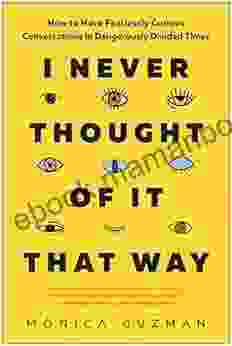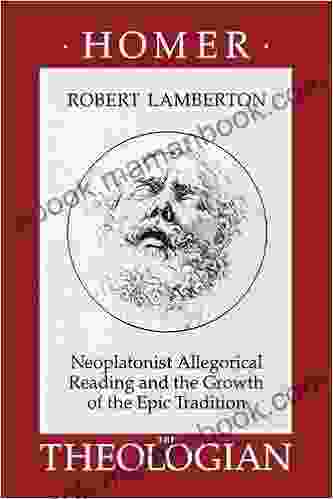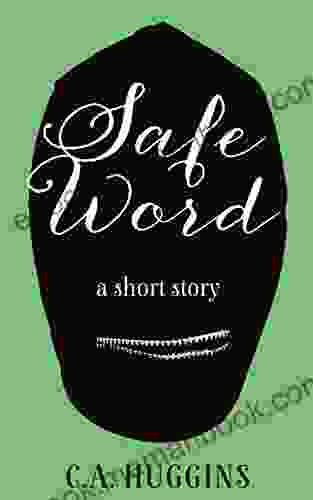Neoplatonist Allegorical Reading and the Growth of the Epic Tradition: A Comprehensive Examination

In the vast landscape of literary history, the epic tradition stands as a towering monument to the human imagination. These grand narratives, spanning centuries and continents, have captivated readers with their vivid storytelling, epic battles, and enduring themes. Behind the surface of these epic tales, however, lies a hidden layer of meaning, one that has been shaped and refined by the profound influence of Neoplatonist allegorical reading.
Neoplatonism and Allegory
Neoplatonism, a late antique philosophical school founded by Plotinus, emerged as a dominant intellectual force in the Western world from the 3rd to the 6th centuries CE. At its core, Neoplatonism posited that the material world is merely a shadow or reflection of a higher, spiritual realm. This belief led to a highly symbolic and allegorical approach to reading texts, particularly those of a religious or philosophical nature.
4.7 out of 5
| Language | : | English |
| File size | : | 5445 KB |
| Text-to-Speech | : | Enabled |
| Screen Reader | : | Supported |
| Print length | : | 384 pages |
| Lending | : | Enabled |
Allegory, in this context, refers to a literary device that conveys a hidden or symbolic meaning beneath the surface level of the text. Neoplatonists believed that the true meaning of a text lay not in its literal sense, but in the deeper, spiritual truths that it encoded. This allegorical approach to reading had a profound impact on the interpretation and appreciation of epic poetry.
Homer's Odyssey and the Epic Tradition
One of the earliest examples of Neoplatonist allegorical reading can be found in the interpretation of Homer's Odyssey. The Odyssey, an ancient Greek epic poem attributed to Homer, recounts the epic journey of Odysseus, a wily and resilient hero who faces numerous trials and tribulations on his return home from the Trojan War.
Neoplatonist scholars, such as Porphyry and Iamblichus, saw in the Odyssey a profound allegory of the soul's journey towards enlightenment. Odysseus's physical wanderings represented the soul's arduous ascent through the various levels of reality, from the material world to the spiritual realm.
Vergil's Aeneid and the Roman Epic
The influence of Neoplatonist allegorical reading extended beyond Homeric epic to other literary traditions. Vergil's Aeneid, the national epic of Rome, written in the 1st century BCE, is another prime example of the transformative power of allegory.
Vergil's epic narrates the story of Aeneas, a Trojan hero who flees the fallen city of Troy and embarks on a perilous journey to Italy, where he is destined to found the Roman people. Neoplatonist interpreters saw in the Aeneid an allegory of the soul's progress through history and the stages of human development.
Dante's Divine Comedy and Christian Allegory
In the Middle Ages, Neoplatonist allegorical reading found its most profound expression in Dante Alighieri's Divine Comedy. Dante's epic poem, written in the 14th century, chronicles his journey through the three realms of the afterlife: Hell, Purgatory, and Paradise.
Dante's Divine Comedy is a masterpiece of Christian allegory, in which every aspect of the journey represents a spiritual truth or symbol. The pilgrim's encounters with various characters and creatures embody virtues, vices, and theological concepts.
Milton's Paradise Lost and the Epic of Enlightenment
The influence of Neoplatonist allegory persisted well into the Renaissance and beyond. John Milton's Paradise Lost, written in the 17th century, is a modern epic that combines classical, Christian, and Neoplatonic elements.
Milton's epic narrates the story of Adam and Eve's fall from grace in the Garden of Eden. Neoplatonist interpreters saw in Paradise Lost an allegory of the soul's descent into the material world and its subsequent striving for redemption.
Impact on the Epic Tradition
The Neoplatonist allegorical reading had a profound impact on the growth and development of the epic tradition. By providing a deeper, spiritual dimension to epic narratives, it elevated these works beyond mere entertainment and transformed them into vehicles for philosophical and religious exploration.
Neoplatonist allegory encouraged readers to look beyond the literal surface of the text and to seek hidden meanings and symbolism. This approach to reading enhanced the complexity and richness of epic poetry, allowing for multiple layers of interpretation and providing a fertile ground for literary creativity.
Neoplatonist allegorical reading has played a pivotal role in shaping the epic tradition. By providing a framework for interpreting epic narratives as profound allegories, it has enriched these works with philosophical and spiritual depth, enhancing their enduring appeal and relevance.
From Homer's Odyssey to Milton's Paradise Lost, the influence of Neoplatonist allegory can be seen in the development and growth of the epic tradition. It has fostered a profound appreciation for the hidden layers of meaning within these literary masterpieces, transforming them into enduring sources of wisdom, inspiration, and artistic expression.
4.7 out of 5
| Language | : | English |
| File size | : | 5445 KB |
| Text-to-Speech | : | Enabled |
| Screen Reader | : | Supported |
| Print length | : | 384 pages |
| Lending | : | Enabled |
Do you want to contribute by writing guest posts on this blog?
Please contact us and send us a resume of previous articles that you have written.
 Top Book
Top Book Novel
Novel Fiction
Fiction Nonfiction
Nonfiction Literature
Literature Paperback
Paperback Hardcover
Hardcover E-book
E-book Audiobook
Audiobook Bestseller
Bestseller Classic
Classic Mystery
Mystery Thriller
Thriller Romance
Romance Fantasy
Fantasy Science Fiction
Science Fiction Biography
Biography Memoir
Memoir Autobiography
Autobiography Poetry
Poetry Drama
Drama Historical Fiction
Historical Fiction Self-help
Self-help Young Adult
Young Adult Childrens Books
Childrens Books Graphic Novel
Graphic Novel Anthology
Anthology Series
Series Encyclopedia
Encyclopedia Reference
Reference Guidebook
Guidebook Textbook
Textbook Workbook
Workbook Journal
Journal Diary
Diary Manuscript
Manuscript Folio
Folio Pulp Fiction
Pulp Fiction Short Stories
Short Stories Fairy Tales
Fairy Tales Fables
Fables Mythology
Mythology Philosophy
Philosophy Religion
Religion Spirituality
Spirituality Essays
Essays Critique
Critique Commentary
Commentary Glossary
Glossary Bibliography
Bibliography Index
Index Table of Contents
Table of Contents Preface
Preface Introduction
Introduction Foreword
Foreword Afterword
Afterword Appendices
Appendices Annotations
Annotations Footnotes
Footnotes Epilogue
Epilogue Prologue
Prologue Marilyn Meredith
Marilyn Meredith Harold Wittaker
Harold Wittaker Barry W Sweeny
Barry W Sweeny Neil Forsyth
Neil Forsyth Pierre Reverdy
Pierre Reverdy Dena Blizzard
Dena Blizzard John Tiffany
John Tiffany Shujiro Urata
Shujiro Urata Erin Benzakein
Erin Benzakein Eli Sapp
Eli Sapp Taste Of Home
Taste Of Home Samira Mahmoodi
Samira Mahmoodi Don W Green
Don W Green Holly Bourne
Holly Bourne Megan Gail Coles
Megan Gail Coles Steve Doocy
Steve Doocy Kelly Williams Brown
Kelly Williams Brown Charmaine Pauls
Charmaine Pauls The Crypto Geek Llc
The Crypto Geek Llc Beatrice Pietrangeli
Beatrice Pietrangeli
Light bulbAdvertise smarter! Our strategic ad space ensures maximum exposure. Reserve your spot today!
 Galen PowellFollow ·8.1k
Galen PowellFollow ·8.1k Percy Bysshe ShelleyFollow ·19.8k
Percy Bysshe ShelleyFollow ·19.8k Levi PowellFollow ·7.1k
Levi PowellFollow ·7.1k Melvin BlairFollow ·12.9k
Melvin BlairFollow ·12.9k Danny SimmonsFollow ·14.8k
Danny SimmonsFollow ·14.8k Adam HayesFollow ·5.8k
Adam HayesFollow ·5.8k Luke BlairFollow ·15.3k
Luke BlairFollow ·15.3k Anton FosterFollow ·6.7k
Anton FosterFollow ·6.7k

 Ross Nelson
Ross NelsonHow to Have Fearlessly Curious Conversations in...
In a world increasingly polarized by...

 Isaac Mitchell
Isaac MitchellFew Things to Keep in Mind for a Successful Introduction...
Writing an series...

 Dallas Turner
Dallas TurnerThe Ultimate Easy Key for Beginners: A Comprehensive...
Welcome to the world of...

 Mitch Foster
Mitch FosterMy First Origami Kit: Ebook Downloadable Material...
Origami, the...

 Tony Carter
Tony CarterQuick, Easy, and Healthy Recipes to Treat Gut Infections...
Gut infections are a common problem that can...

 Adrian Ward
Adrian WardThe Mechanism Behind Italian Poetry In English: Poesia...
The world of...
4.7 out of 5
| Language | : | English |
| File size | : | 5445 KB |
| Text-to-Speech | : | Enabled |
| Screen Reader | : | Supported |
| Print length | : | 384 pages |
| Lending | : | Enabled |












